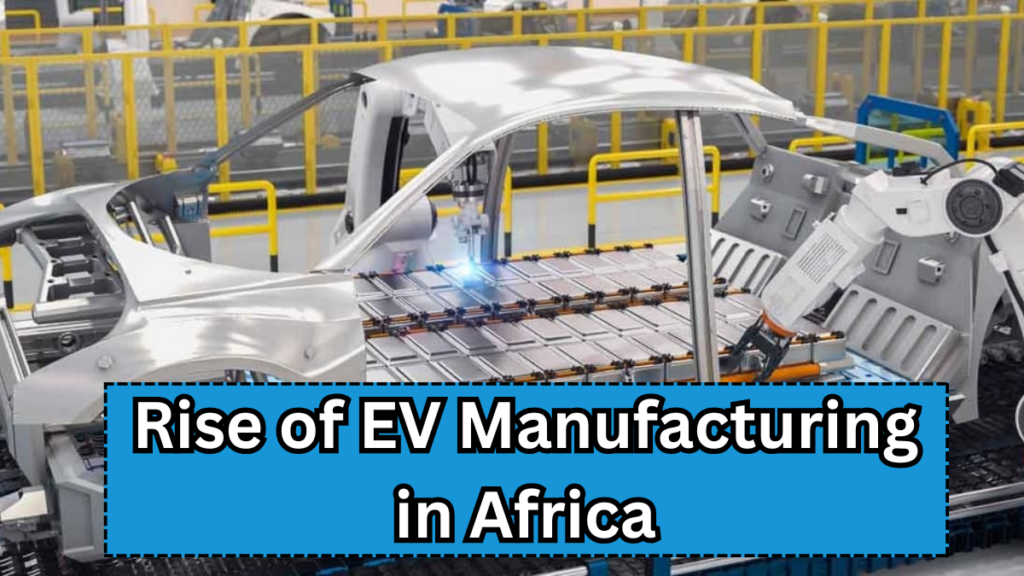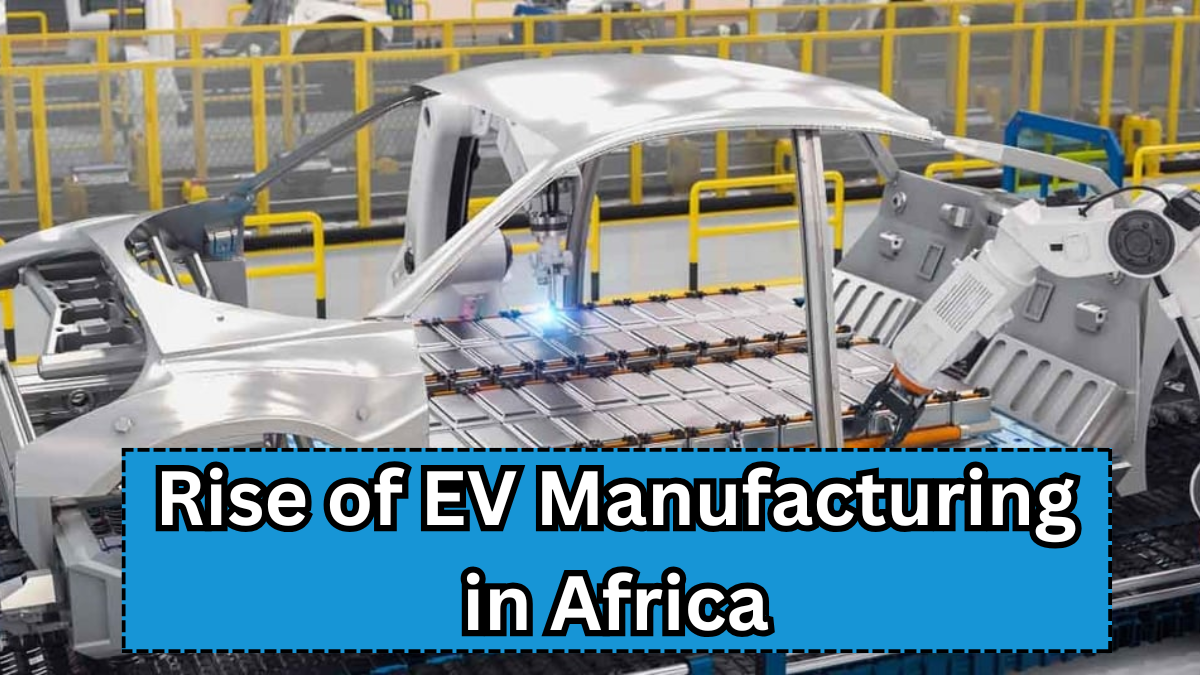The electric vehicle (EV) revolution is no longer limited to developed countries. EV Manufacturing in Africa is rapidly gaining momentum, creating new opportunities for jobs, exports, and technological growth. Africa is now stepping confidently into the EV race, bringing exciting developments to the local industry and international markets.

Why EV Manufacturing is Booming in Africa
Africa’s growing interest in EV production is driven by:
-
Increasing demand for sustainable transportation
-
Abundant natural resources like lithium and cobalt
-
Government support for clean energy initiatives
-
Rising fuel prices encouraging electric alternatives
This growing sector is transforming the local industry and positioning Africa as a significant player in the global EV market.
Key Drivers Behind EV Manufacturing in Africa
Abundant Raw Materials
Africa is home to essential EV components like:
-
Lithium
-
Cobalt
-
Nickel
These resources give Africa a natural advantage in the EV supply chain.
Growing Local Industry Support
-
Governments across Africa are promoting EV-friendly policies.
-
Local manufacturers are receiving incentives to set up production units.
-
Investment in charging infrastructure is increasing.
Export Opportunities
EV Manufacturing Africa is not just for local consumption:
-
African-made EVs are now being exported to Europe and Asia.
-
This expansion strengthens Africa’s global trade connections.
How EV Manufacturing is Impacting Jobs
The rise of EV Manufacturing in Africa is creating employment across various sectors. Here’s a breakdown:
| Sector | Job Opportunities Created |
|---|---|
| Manufacturing Plants | Assembly line workers, engineers |
| Mining | Lithium and cobalt extraction |
| Infrastructure | Charging station builders, maintenance crews |
| R&D | Battery technology specialists, software developers |
This surge in job creation is reshaping the local industry by offering careers that contribute to Africa’s green future.
Innovation Driving Africa’s EV Sector
Technological Growth
-
African startups are developing affordable, locally-made electric bikes and cars.
-
Universities and research centers are actively working on battery innovation and energy storage solutions.
Local Solutions for Local Challenges
-
Companies are building EVs designed for Africa’s rugged terrains.
-
Focus on solar-powered charging stations to address limited electricity access.
Collaboration with Global Players
-
Partnerships between African firms and international EV giants are boosting technology transfer.
-
These collaborations are vital for scaling up EV Manufacturing in Africa.
Quick Snapshot: Benefits of EV Manufacturing in Africa
| Aspect | Impact |
|---|---|
| Jobs | Thousands of new employment opportunities |
| Exports | Increasing shipments of EVs and components |
| Innovation | Growth of local R&D and tailored EV solutions |
| Local Industry | Strengthening of domestic production capabilities |
FAQs
1. Why is EV Manufacturing in Africa gaining attention now?
The combination of rich mineral resources, rising fuel costs, and supportive government policies is accelerating the EV Manufacturing Africa movement, making it a timely and promising opportunity.
2. How is the local industry benefitting from EV manufacturing?
The local industry is seeing massive growth through job creation, skill development, and increased demand for local raw materials and components.
3. Are African-made EVs being exported?
Yes, EV Manufacturing in Africa is not just focused on local markets. Many African EVs and components are being exported to Europe and Asia, strengthening Africa’s position in the global supply chain.
4. What challenges does EV manufacturing face in Africa?
Some key challenges include limited charging infrastructure, high initial costs, and the need for more skilled labor. However, local innovations and international partnerships are steadily addressing these issues.
Click here to learn more
Sachin is a dedicated writer specializing in education, career, and recruitment topics, delivering clear and actionable insights to empower readers.
